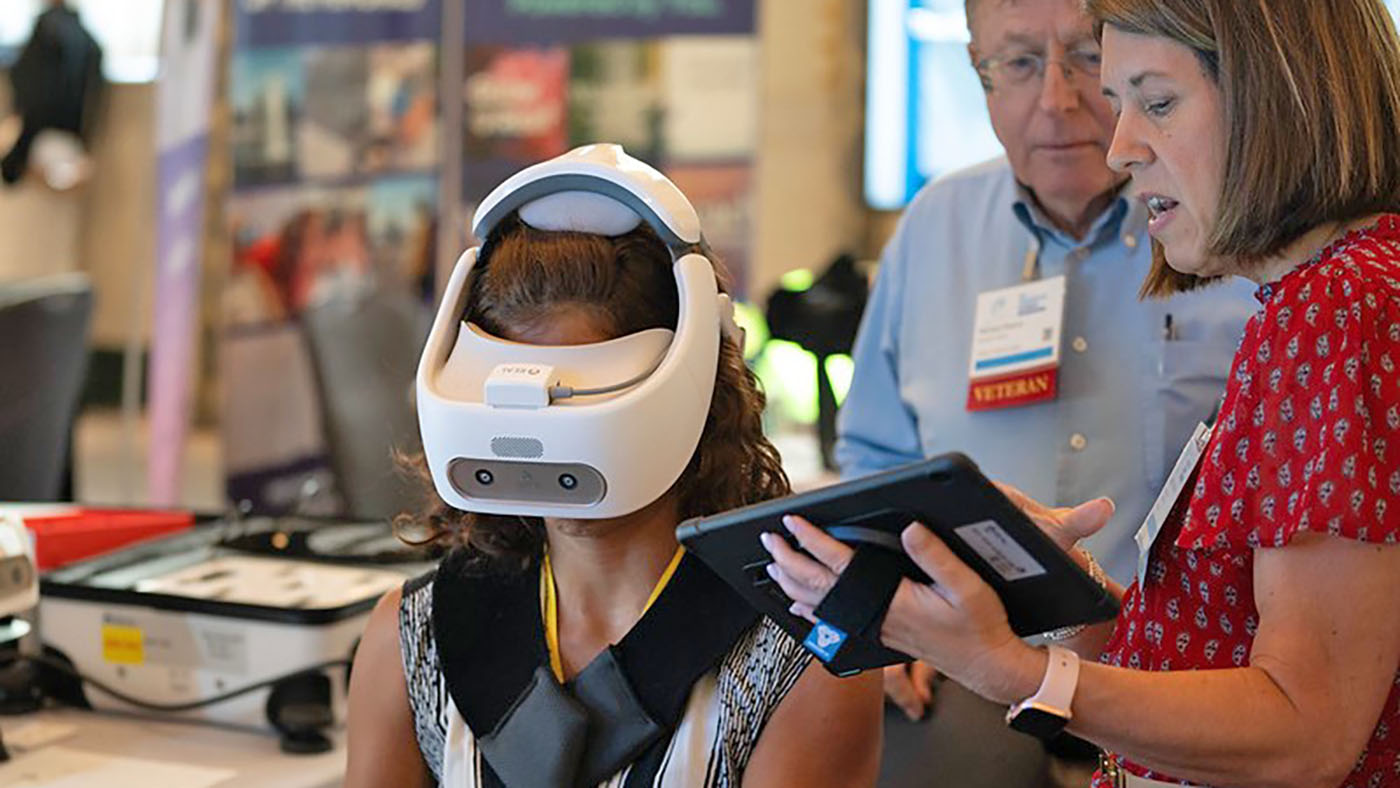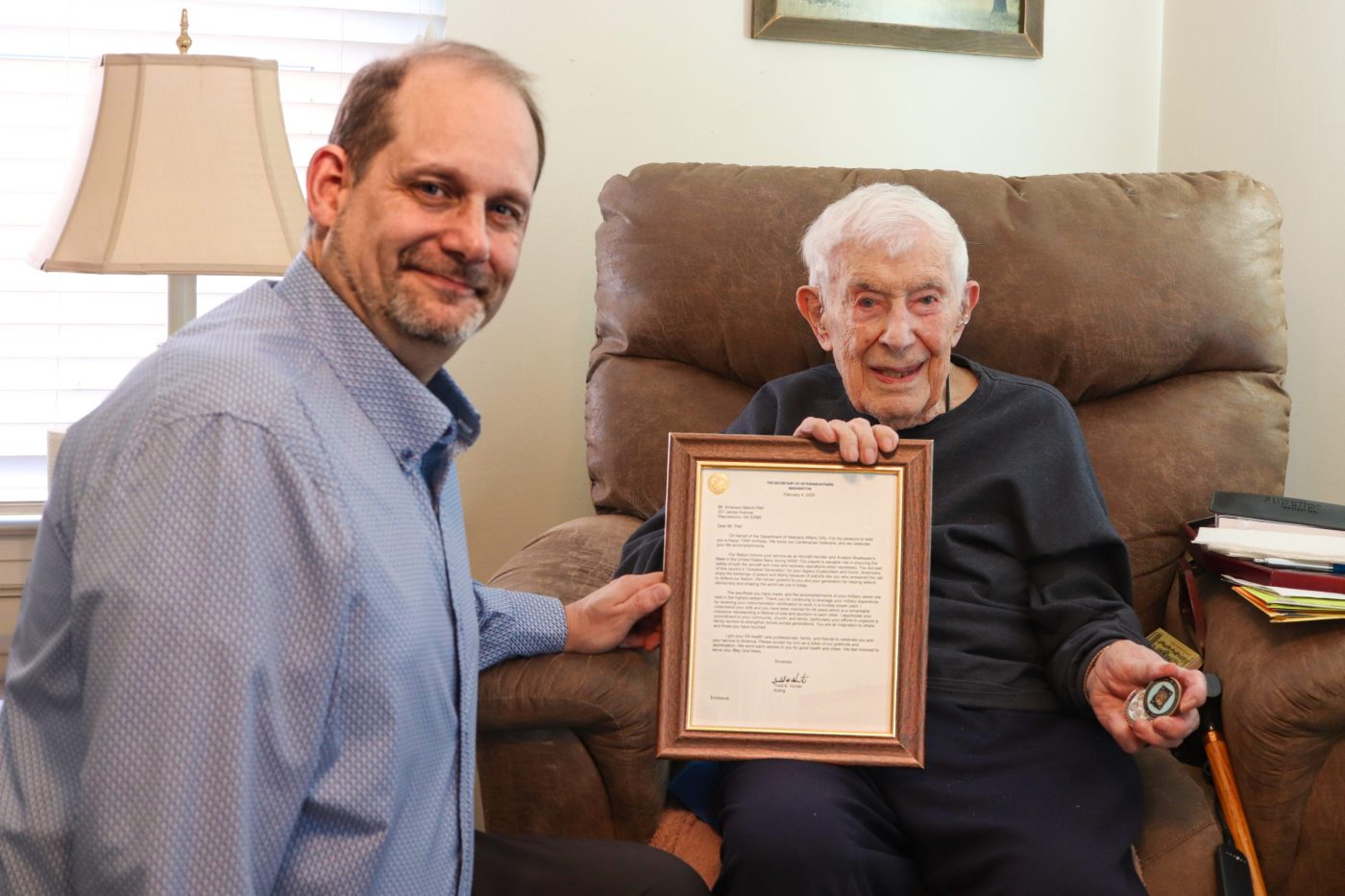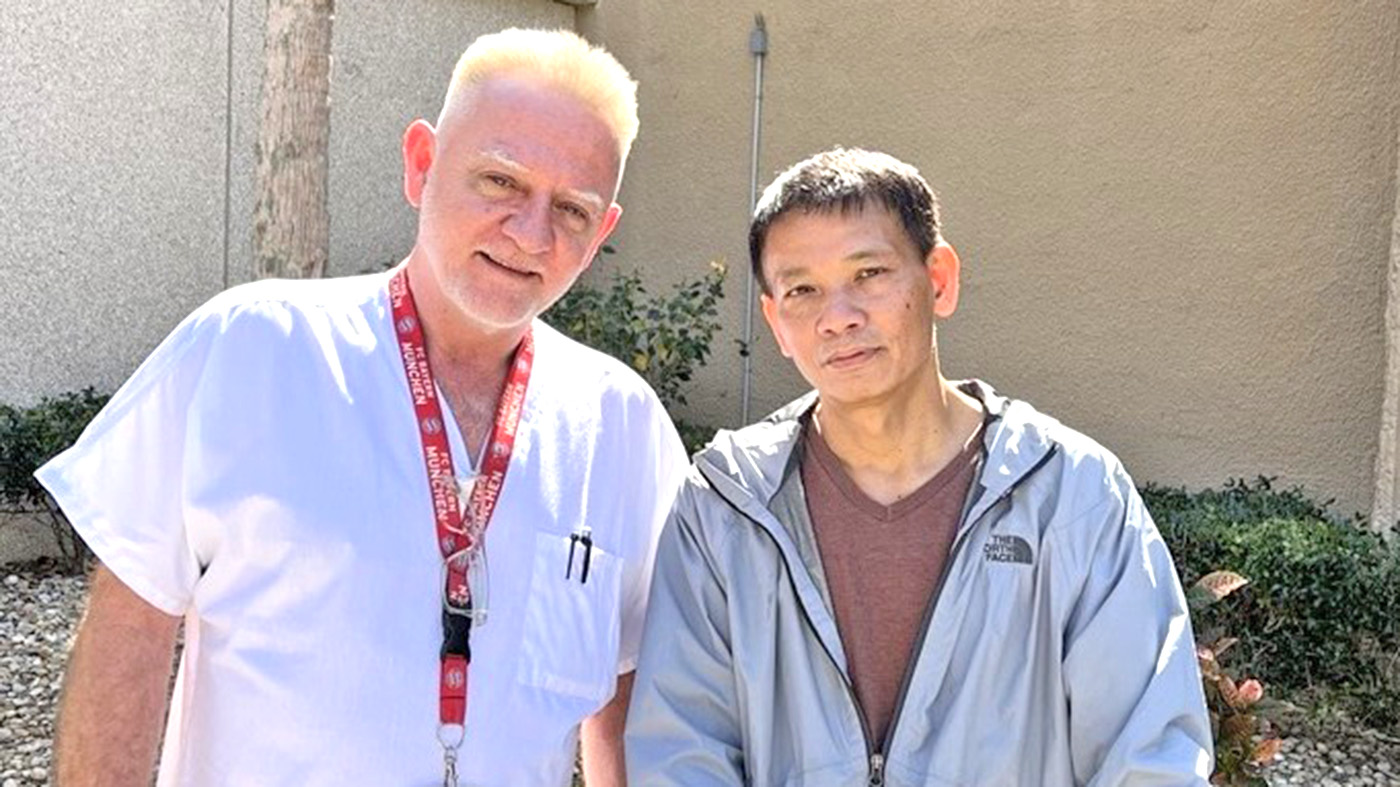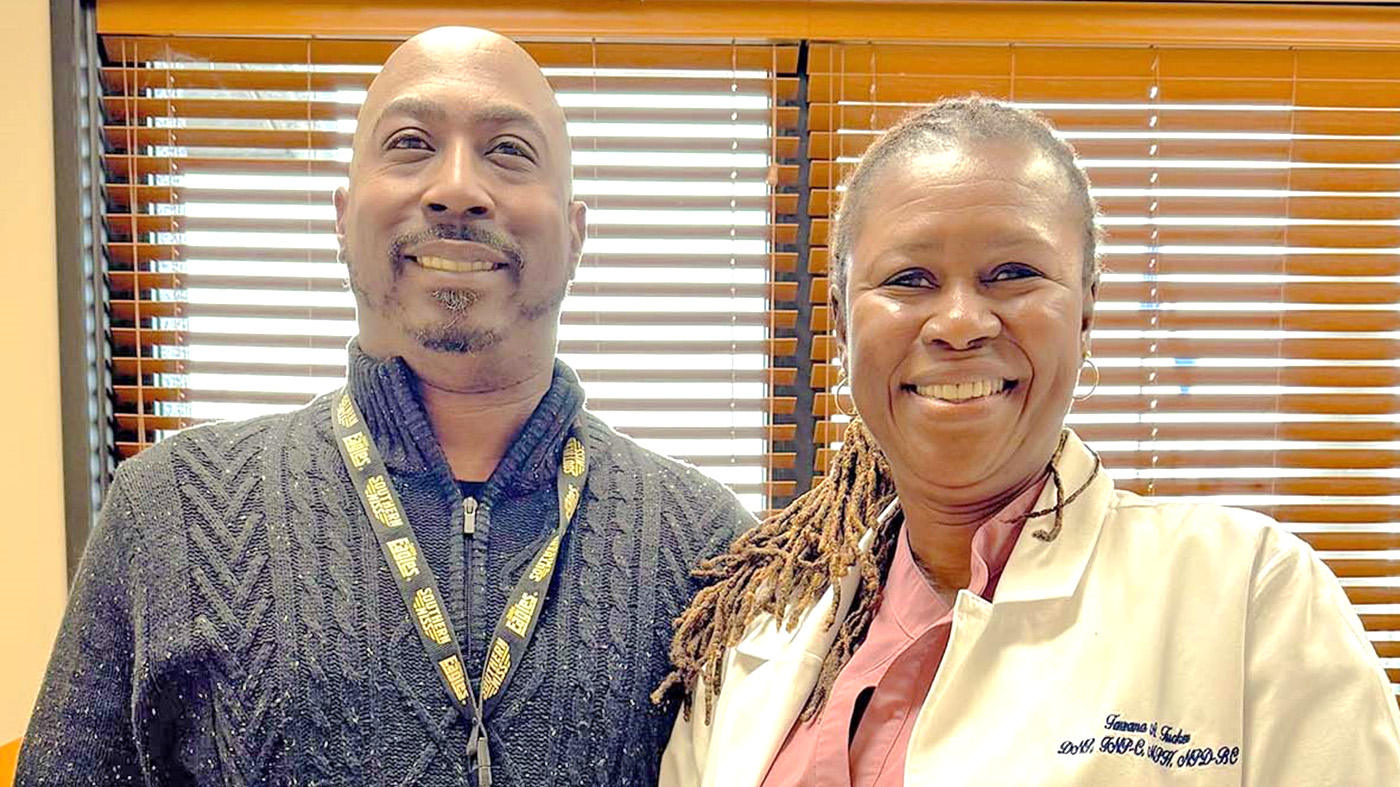This August, hundreds of VA leaders, Veterans, VA frontline staff, Veteran Service Organizations and academics gathered in Washington, D.C., and virtually at the 2023 VA Immersive Summit to share and experience how Veteran care is—and can be—transformed with immersive technology.
Attendees had the opportunity to try out dozens of immersive technologies available in the exhibition area and learn about both VA and industry-built software programs. One VA led program, Moments that Matter, was actively putting heads in headsets.
Developed through a collaboration between VA’s Office of Healthcare Innovation and Learning and Veterans Experience Office, this VR program allows VA clinicians to experience the inpatient discharge process through the perspective of their patients.
“These innovations and advancements demonstrate the power of immersive technologies, like virtual reality to transform health care across the entire spectrum of clinical care, training and education,” said Dr. Carolyn Clancy, assistant under secretary for Health for Discovery, Education and Affiliate Networks (DEAN). “We can create what the future looks like.”
Putting heads in headsets
Other exhibitors showcased the wide range of existing commercial programs that Veterans are currently using, such as gamified physical therapy, emotional regulation and in-vivo exposure therapy for post-traumatic stress disorder. There were also relaxing and engaging programs to positively distract from chronic pain and a virtual Honor Flight that allows Veterans who are unable to travel to experience several war memorials.
“Experiencing some of these headsets for the first time… words can’t explain the impact it had on me,” said Navy Veteran Grace Esposito, who participated in the “Voice of the Veteran” panel. “It has helped transform my life in so many aspects… weight/balance issues… and has given me a creative outlet.”
Evan Davis, VA Immersive project manager and Marine Corps Veteran, shared, “There’s no more exciting part of my job than putting ‘heads in headsets.’”
Caitlin Rawlins, VA Immersive program manager, said “The Immersive Summit is a true example of what VA Immersive is all about… a diverse community collaboratively achieving health care transformation with the Veteran’s voice guiding us.”
Looking to the future
Dr. Susan Kirsh, deputy assistant under secretary for Health for DEAN, posed a question: What should VA be focused on over the next year as it relates to immersive technology?
Attendees, both virtual and in person, responded via poll. The answers overwhelmingly favored three areas of focus: Increase access to immersive technology; keeping diversity, equity and inclusion as foundational principles; provide more training and education for both staff and Veterans and gather more and better data.
Over the next year, VA Immersive plans to support VA in increasing total number of available headsets, partnering with VA’s NOLA U for more regular staff and Veteran training, and collaborating with Office of Information and Technology and others to advance the infrastructure for data gathering and analysis.
“VA has a long history of leading innovation, and implementation of immersive technology is another example of that leadership. We have a lot of hard and exciting work to do over the next year, and we are looking forward to celebrating growth and success at next year’s VA Immersive Summit,” said VA Immersive Lead Dr. Anne Lord Bailey.
Read more stories on immersive technology.
Topics in this story
More Stories
When asked if he's a hero, 100-year-old WWII Navy Veteran Emerson Pell gave a short, modest response: “I was just a normal guy.”
A member of the Care Transition Clinic got to demonstrate his I CARE values for an Army Veteran.
When a Veteran explained a diabetic health issue to staff, they scheduled an immediate medical appointment.





